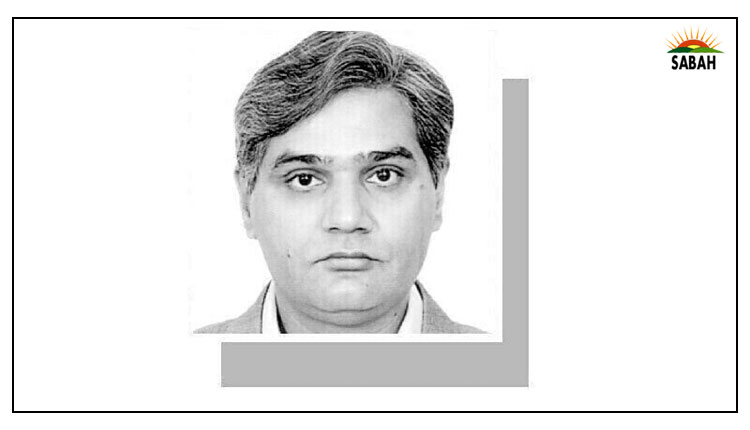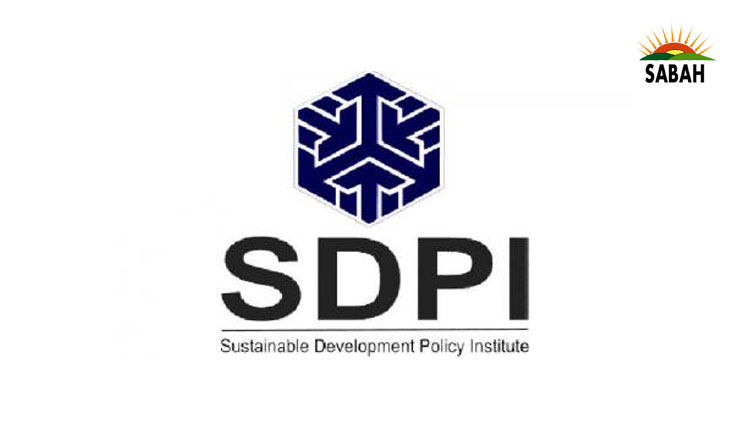Millions need humanitarian aid, rescue & rebuilding: Experts says at a discussion organized by SDPI
ISLAMABAD, August 28 (SABAH): Millions of people hit by the worst floods in Pakistan’s history of six decades need huge humanitarian aid in terms of food and non-food items, tents, toilets, hygiene kits, sanitary pads, and cash for quick response, rescue and recovery. Pakistan also needs trained humanitarian workers with global expertise to bring people out of trauma and flood waters and help them rebuild.
This was the crux of a discussion over twitter space organized by the Sustainable Development Policy Institute (SDPI) wherein experts with humanitarian background highlighted a number of policy options for adequate response, recovery and rehabilitation plan.
Speaking at the occasion, Executive Director of the Sustainable Development Policy Institute (SDPI) Dr Abid Qaiyum Suleri, said when losses are more than the 2010 floods, a bigger response and recovery plan backed by adequate resources should be made leaving aside political differences and considerations. He said that the damages will result into livelihood losses and food insecurity. He said BISP is a great cash disbursement programme as social safety net.
Head of Pakistan Humanitarian Forum Syed Shahid Kazmi said that we need to prioritize providing cooked food, nutritious dry food items, drinking water, medical camps, fodder and other veterinary services for livestock, de-watering, mosquito nets and shelters with temporary toilets.
He said under such circumstances, there is a need to provide women and children safe spaces to protect them against violence. He hoped that once the UN flash appeal will be launched, much of humanitarian funding will come to Pakistan.
A leading expert on Disaster Management, Syed Waqar Shirazi gave a situation overview on the impacts of floods calling for a real time assessment of the losses and damages and impacts on the people and infrastructure. He said only in three districts- Dera Ismail Khan, Dera Ghazi Khan and Tanks 70 to 85% area submerged and caused massive destruction.
He said power and telephone signals were cut in the flood hit areas which hampered rescue work. The floods damaged standing crops such as rice, sugarcane and cotton; and seeds for future crops were also washed away. He warned against ensuing epidemics as a result of standing water. Shirazi said this is the result of disallowing humanitarian INGOs to operate in the country that now we have shortage of trained humanitarian workers with global experience.
Humanitarian policy specialist and Research Fellow Resilient Development Programme at the SDPI, Dr Shafqat Munir Ahmad said had we learnt lesson from the 2010 onwards floods, we would have built safe spaces and raised platforms to protect people and their belongings. He said that we need to update national, provincial, and district levels development plans making them risk-sensitive.
He said unprecedented monsoon will continue to occur ostensibly linked to climate change, so we have to put in place proper preparedness and DRR plans at community level. He called for allowing global humanitarian actors to restart their operations on a long-term basis by providing them enabling environment. Disallowing INGOs on security concern could be valid but their absence has created a grave and continued human security issue. We have to rethink, he added.
Writer and Environmentalist Zofeen T. Ebrahim said that youth have a passion to support the flood victims but they are not trained in humanitarian work which causes a trouble in reaching out to the people. She called for providing cooked food and tents to give immediate relief to the floods affected population.
Senior developmental journalist, Moazzam S Bhatti was of the opinion that media can play a great role provided it is given access to assessment data. Appeals through media always draw funds and humanitarian support from general masses and philanthropists. Climate scientist Dr Fahad Saeed gave a suggestion that Pakistan should build its case at the forthcoming COP27 in Egypt based on scientifically tested data that the losses incurred in floods are related to climate change so that the country can access to climate fund set aside for this purpose.
Senior Water expert of WWF, Dr Imran Khalid said that the areas submerged are prone to such incidents in future as well so there is a need to build safety bunds to protect people and livestock, and build reservoirs to harvest rainwater. He called for urgent action to make communities resilient against such shocks as their resilience has been marred due to multiple crises.












